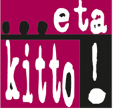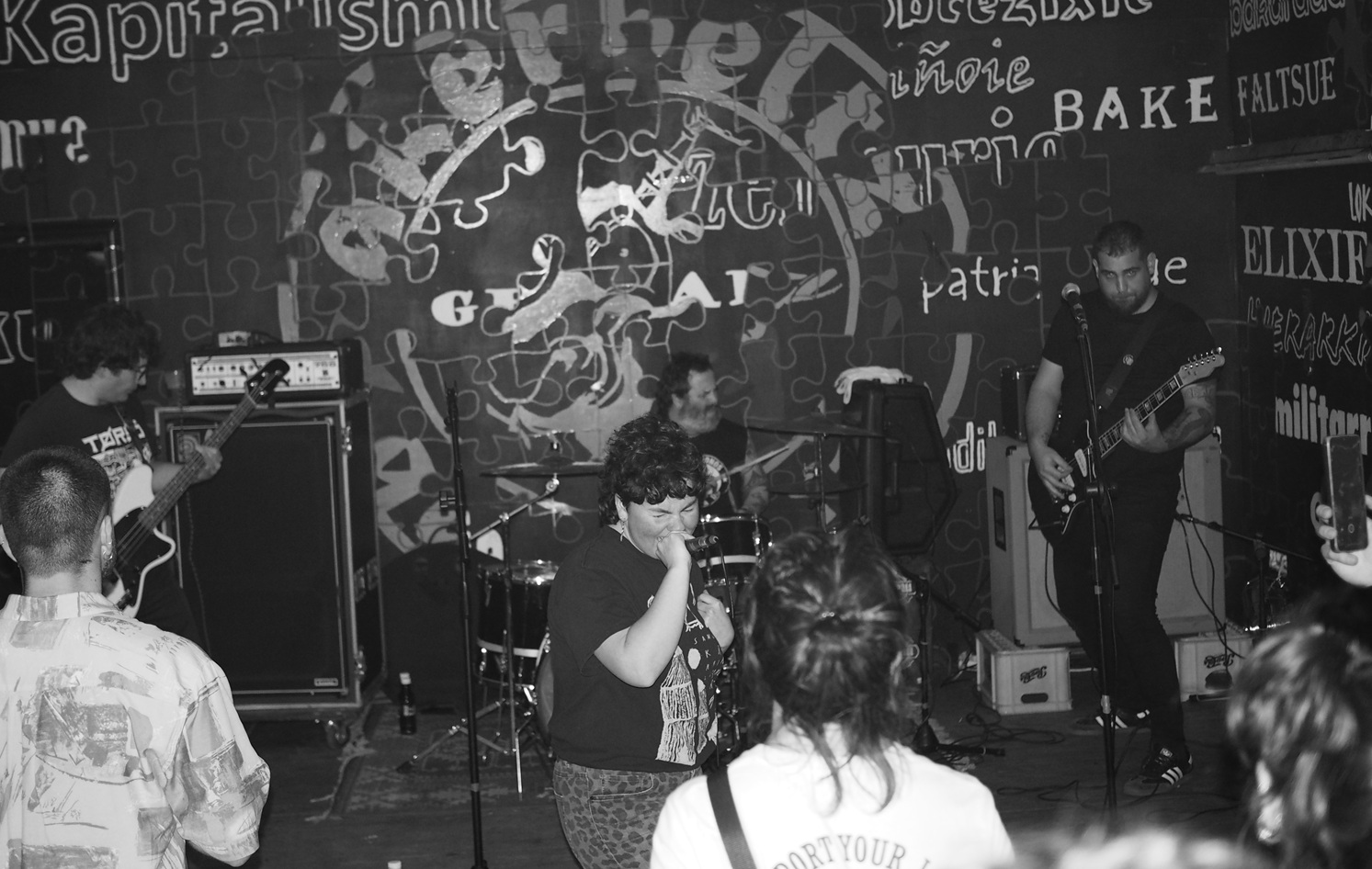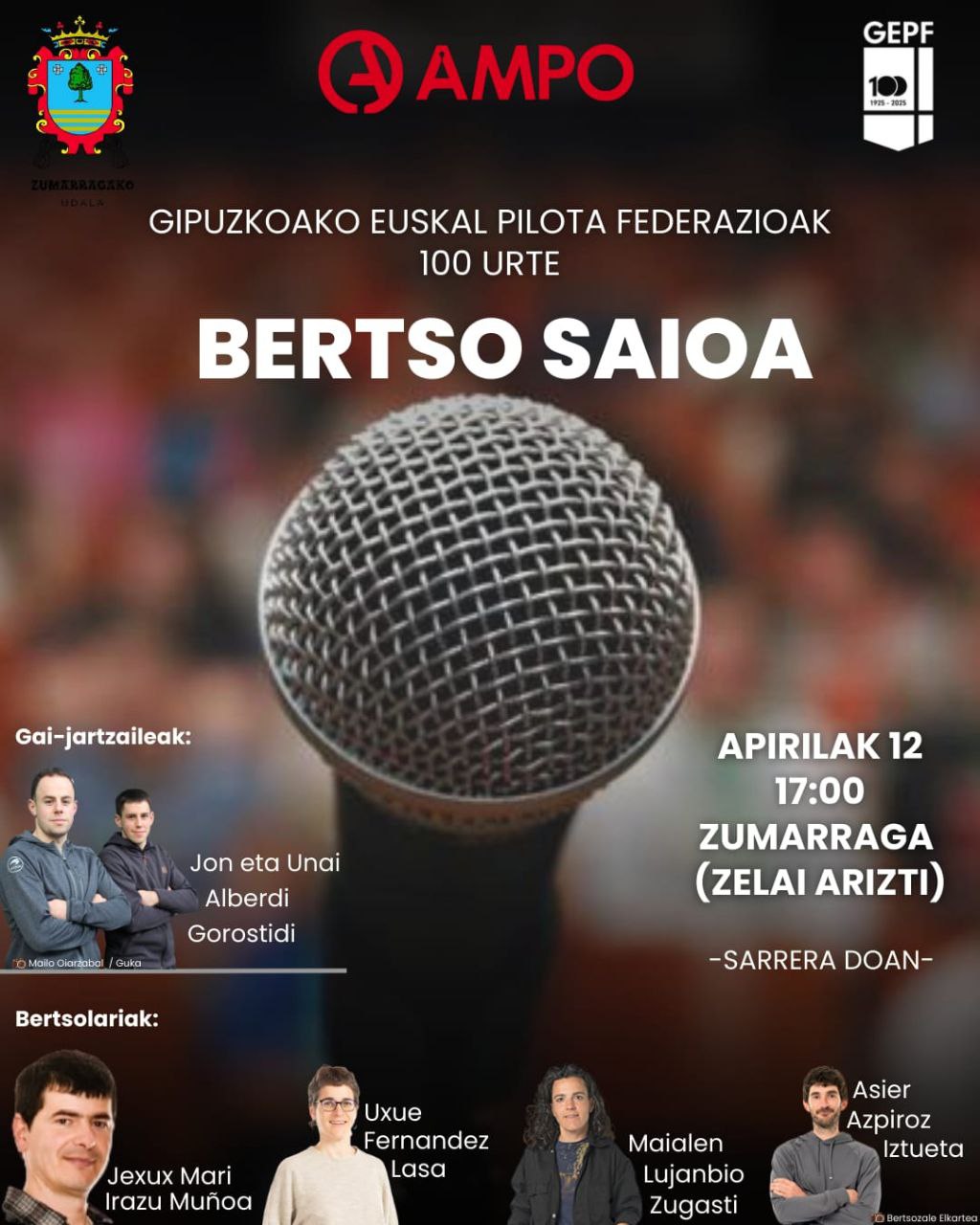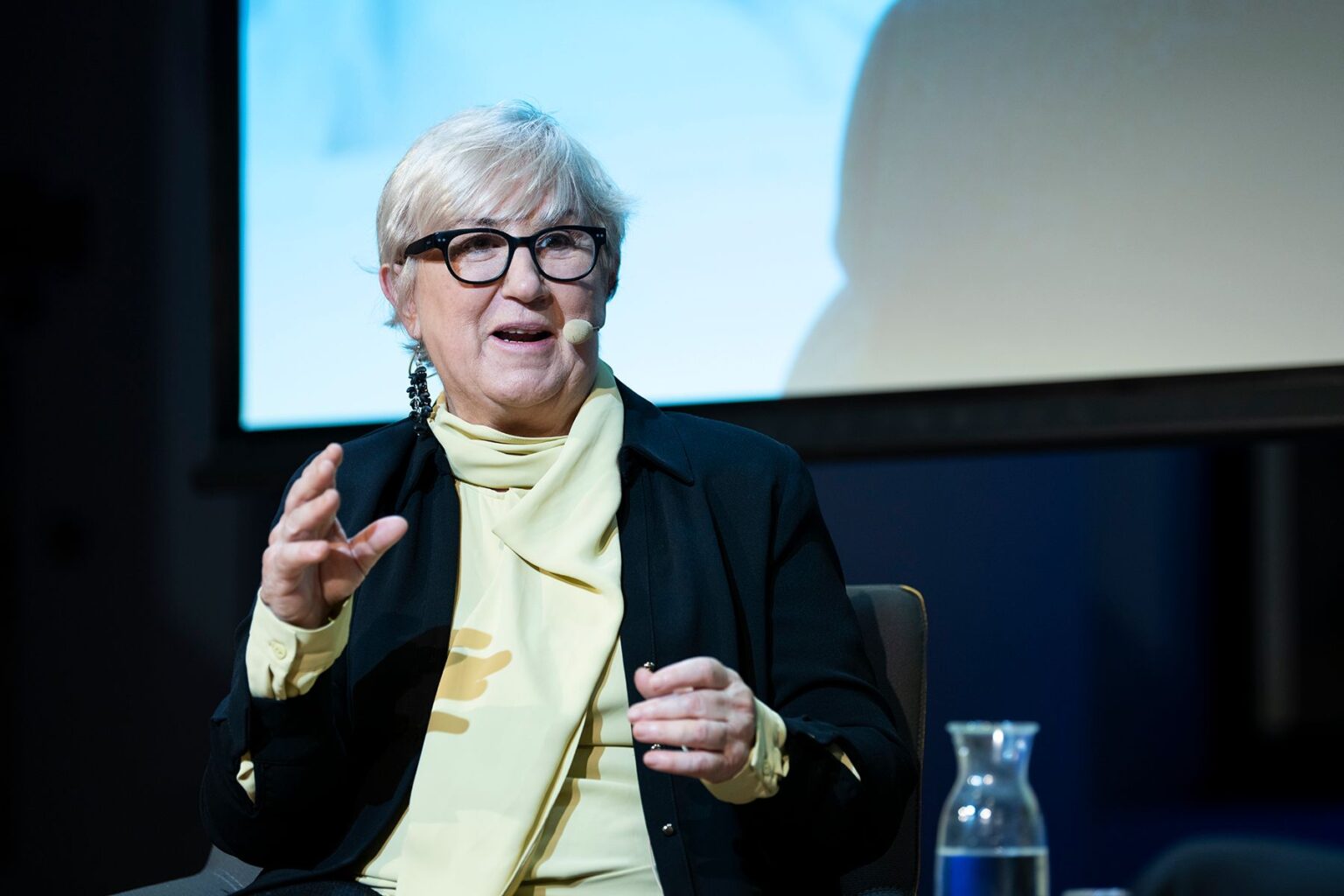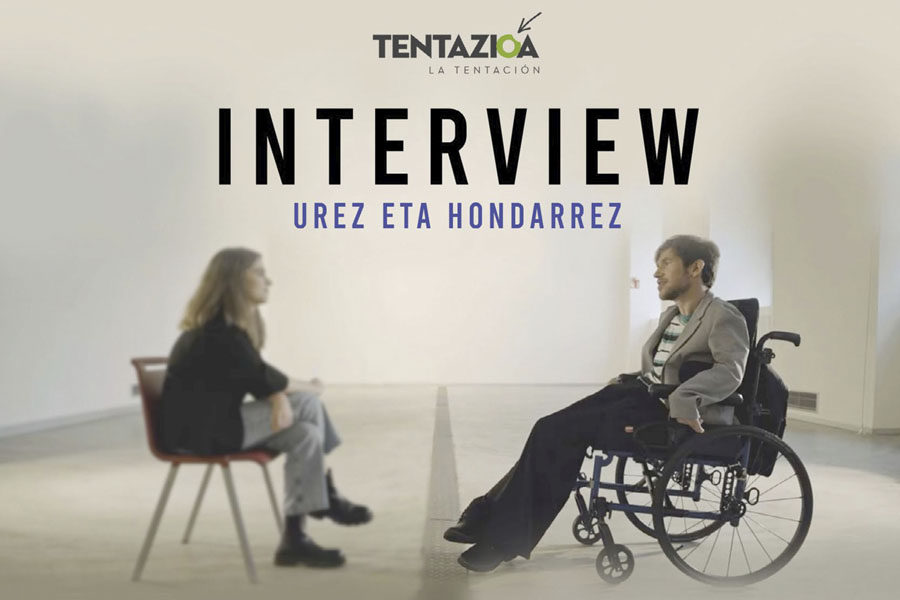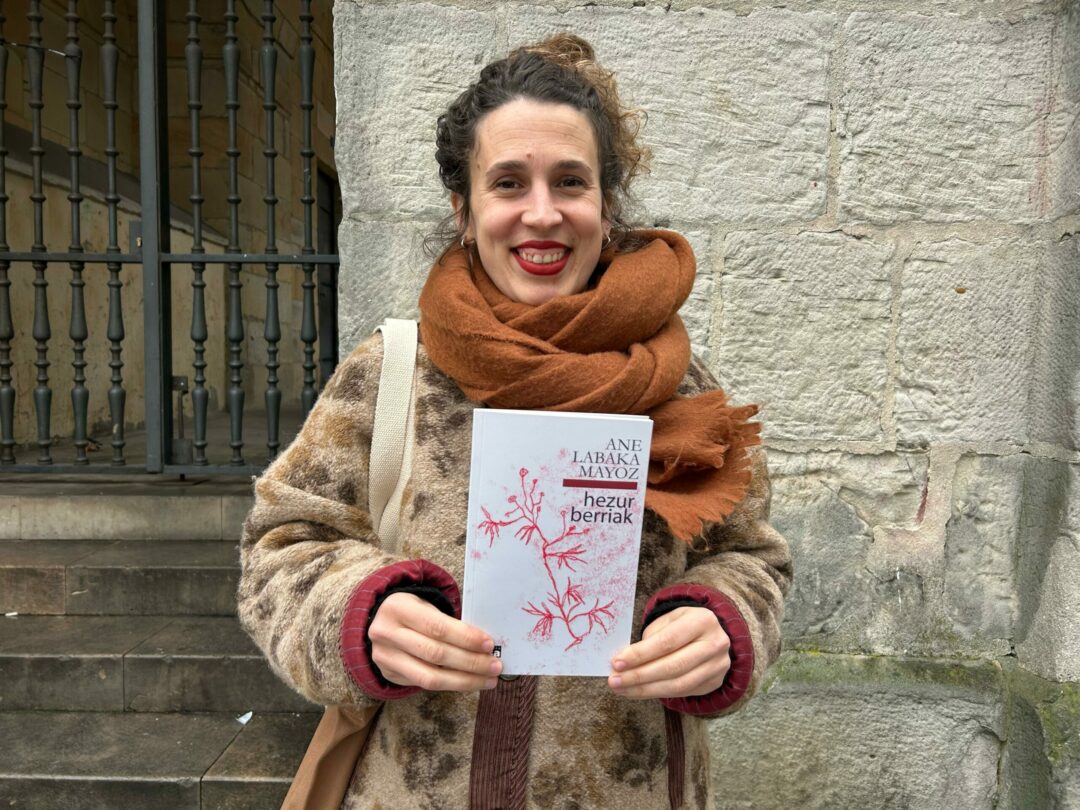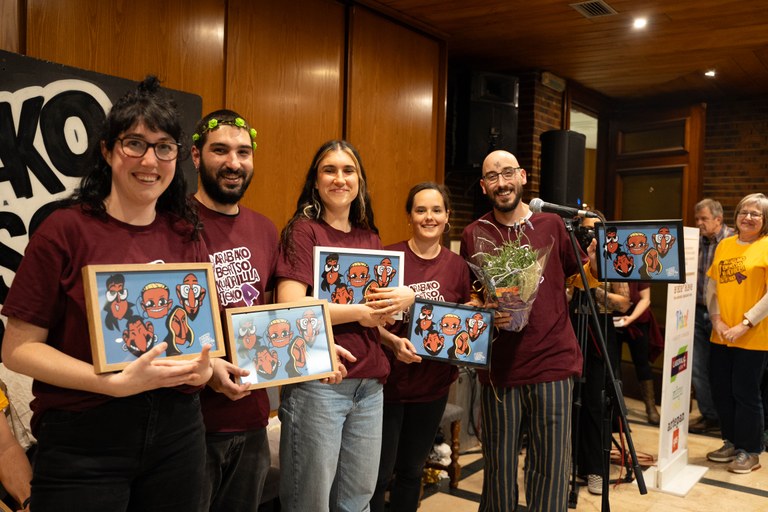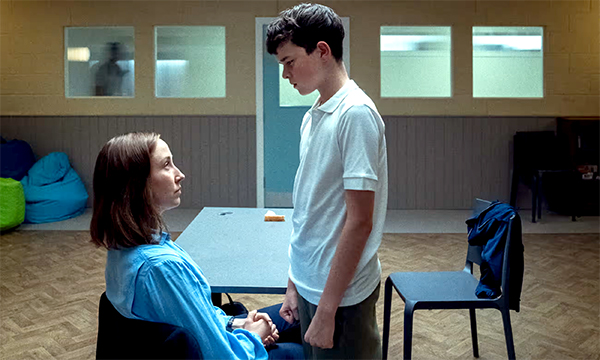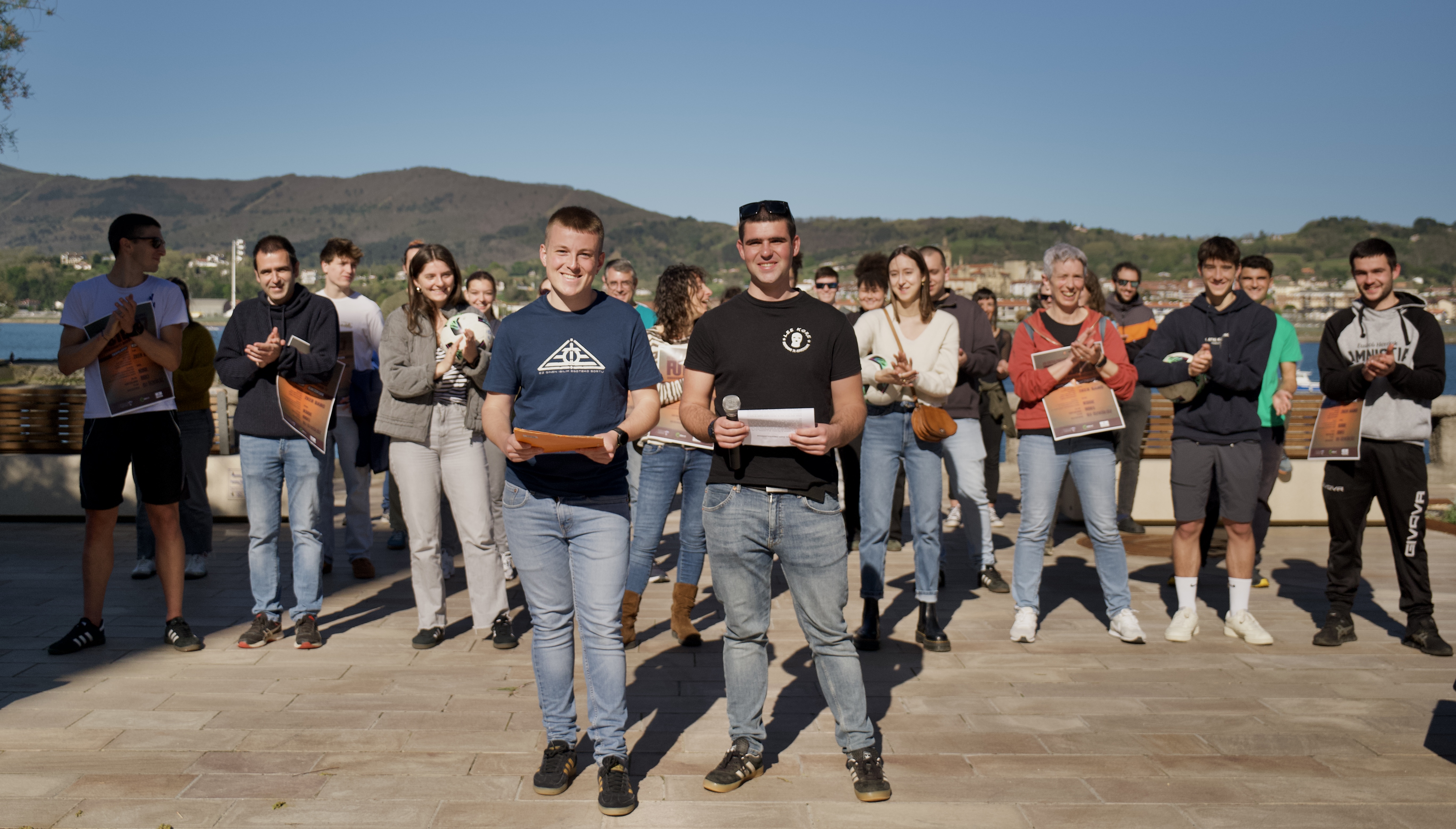"Federico Krutwig was the whole person of Western culture"
- The Nabarralde Foundation has published a book that gathers the life, thought and work of Federico Krutwig Sagredo. 13 people from the association or collective Krutwigen Lagunak, including Manu Ertzilla and the Eibarrés Oskar Arantzabal. In fact, these two will be on Wednesday, at 7:00 p.m., to offer a documentary about Kulturun Krutwig and be able to speak in its surroundings.

Writer, politician, polyglot and polyhedral. Renaissance man. Federico Krutwig has been one of the most prominent characters in the Basque Country in the 20th century and yet, as Ercilla and Arantzazu say, “children under the age of 45 barely know him”.
For those of you who don't know, who was Federico Krutwig?
ERCILLA: Krutwig was born in Getxo in 1921 in a semi-bourgeois family. His father was German, from Cologne during World War I. He settled in Bilbao and engaged in the machinery trade. Federico first studied at the French School, then at the German School, then studied economics at Deusto. As a child, he thought that life is short and that one has to learn and learn. He said he spent 10-12 hours reading, but his father didn't like it, he preferred it to be a merchant, and for his father not to see it, he would go into bed to read.
ARANZABAL: On the other hand, as the chauffeur of the family was Basque, the desire to learn the language arose. He was a new Basque.
ERCILLA: It was very easy for languages, but despite the ease, it was curious that, despite having done it in any language, it always used the same syntax. It's kind of a trap for learning languages. At about 23 years old he joined Azkue and was the biggest trampoline to move to the Basque world. Azkue gives him a commission before he dies: Basque Organization. As a result of the war, many Euskaltzales lived outside and a quorum was missing for congresses. At that time he introduced Luis Villasante to Euskaltzaindia. Normally, when someone comes in, an intern does a conference and the one who comes in does the same, and it was Frederick who gave the conference at the Provincial Council of Bizkaia. Year 1952. In the conference he got involved with the church because he went against the Basque Country, etc., using ecclesiastical arguments, and even, indirectly, entered against the regime. Thus, he had to leave Hego Euskal Herria.
At the age of 27, he was appointed a member of the Basque Language Academy and spoke of the need to “remove the Basque from the alpargata”. What did that mean?
ARANZABAL: For example, he criticized that the church did not give Mass in Basque and that this was something contrary to believers. Manu hasn't mentioned it, but she was once asked how many languages she knew and she didn't know what it was. It could be 15 or 20. Some languages, such as Sumeria and classical blinds, were dead and, by not practicing with whom, did not know whether or not he dominated the language.
ERCILLA: In response to the question, Frederick was the whole person of Western culture. The painter Arteta painted Basques with thin face, etc. “These are monsters,” Krutwig said, “to paint them is not to wager on the Basques, but to defame the Basques.” In his view, Euskaldun should be aware of the need for a culture to which his language must be given. And because you have to give her the language, "How is the language?" she asked. Although the Biscayan Sabinist began to write, he soon realized that he could not write like this, but following the Basque literary tradition. That is, in labortan. The laboratory has a level that the other dialects do not have and believes that is what had to be taken and from there start to do everything.
ARANZABAL: Federico was a very humanist person. One of those Renaissance sages. He was also very good at photography, even as a painter. He then realized that most European peoples had realized a cultural Renaissance. German unity came thanks to the Luther Bible, which used this model: “We should do the same to be a cult people.”
Manu, you participated in the working group to work the classic Basque with Federico. How was the performance?
ERCILLA: Krutwig did not propose that we now have to return to Lizarraga. No. Take Lizarraga and update. For Frederick, the Basque Country was made. Take that, refresh and ready. But he was out and couldn't do much before Koldo Mitxelena's proposal. This proposed the Guipuzkoan for the unified Basque. The Gipuzkoan and labortan are not two different languages, there are small differences, but they have their weight in the syntax, especially when making literature and writing long texts. The classics have done so. That is, they have the same thing that was done in the other languages in the Renaissance. They took Latin and Greek as their basis and copied it. They're so copies that French doesn't need to learn Latin because it has it inserted, and English and German the same. The Basque country has not done so. Federico didn't say it, but he thought: “Our calamity is that we don’t realize it.” The Basque country does not include all this. In other words, since the Renaissance, the modern world, the Basque country has not, the Basques have not inserted it into the language, and the others have. So there are 400 years of lag.
Can we not bridge this gap?
ERCILLA: Yes, if we are aware of that. In the case of the media, for example, English or French makes it possible to see that they use about 12,000 words. In the case of the Basque Country, about 500. And don't we notice?
ARANZABAL: As philosopher Wittgenstein said: “The limits of my language are the limits of my world.” This shows you how far you can go with your language. It is true that in this country we have large complex tiny ones. The Basque country has a demon potential. If you look at the roots, you'll find, for example, that there are enormous possibilities in philosophy. Another thing is that we don't know them. So Krutwig said that receiving the level of language would be a way of dignifying oneself in the world.
ERCILLA: On the other hand, Federico talked about the ‘colonized syndrome’. The Basque is colonized, especially in Spanish. Colonization means that the Basque has been delayed, anachronistic, false brain, etc., and the Basque has assimilated and naturalized it. Now the Basque behaves with the virus introduced by the conqueror.
ARANZABAL: And I'm going to say more. About 500 years ago, when Spain came to America, one of the biggest doubts theologians had was deciding whether Native Americans were people or not. This had religious implications, with or without going to heaven. Today is the day when Basque is banned in France. Therefore, the Basques of Iparralde are second-class people. That is, 500 years later we have made some progress, but not much.
A landmark of Krutwig's work is Vasconia. Dialectical study of a nationality where he developed a new progressive conception of nationalism. Is it related to the aforementioned colonized syndrome?
ARANZABAL: Until then, Sabino Arana's theory prevailed. A classic Basque Country, with seven territories, largely based on racism. At this time, racism was normal all over the world. Federico made a new reading from an ethnic perspective. Language gave him a vision of the world. He proposed that we read the world with our glasses and give you tools for it. For example, within the word ‘Lankide’ we include the director of the company, who accompanies him and everyone, which explains the concept of auzolan, cooperatives here work and in other places do not … In other languages he does not find it. An English, French or Spanish can use the word colleague, but it is not the same. That gives us our identity.
Oskar, you have read in the book Vasconia from the perspective of political economy. What did you deduct?
ARANZABAL: In the 1960s, Scandinavian social democracy was very fashionable. Krutwig said that states or socio-economic units of 3 or 5 million people work much better than others. 10 years ago, very liberal The Economist magazine made a world order and showed what Krutwig said. So time makes Krutwig right. It is no coincidence that the processes we live in Scotland and Catalonia, which are countries of this size. Krutwig proposed the creation of the United States in Europe, but not in an Americanist sense. It proposed a kind of confederal Europe, a Europe of peoples. This would respond to a lot of things. For example, in terms of productivity, these states would be much more efficient. That is a challenge for Europe, which has not yet defined it. Federico said it many times: “There are two models in Europe: Germanic (from the northern countries) and French.” The Frenchman is centralist and Jacobin, and the consequences are those, which come to ban languages. I recently read that in the plenary sessions of some municipalities in Northern Catalonia they prohibit doing so in Catalan. If that's called democracy, don't tell me.
"For Frederick, and for many early 20th century philosophers and philologists, classical Greek is the key to cybernetics."
Krutwig also reflected on new technologies. What contributions did it make?
ERCILLA: In 1984 he published the book Computer Shock, but Norbert Wiener published in 1948 the book Cybernetics. I mean, Frederick read it all, as a Frenchman or a German had read it, but nobody here knew what cyber was. “He was an advanced federico,” he says. Well, it was advanced relative to the people here. He said: “What happens in cybernetics? Intelligence enters the machine and the machine applies the program introduced by us. But to do so, intelligence and intelligence must be used to develop programmes. That knowledge doesn't come from heaven, you have to learn, and in that learning, languages have all the foundation. The more complicated the language, the more abstraction there will be more potential.” For Frederick, and for many early 20th century philosophers and philologists, the key is the Greek classic. Classical Greek conceptions (especially in time) do not have Latin and therefore do not have Romanesque languages. So he believes that classical Greek had to be studied, not only because of that, but because it is at the base of culture. As I said before, others have learned it, but we have not, and we have to learn. For two reasons: On the one hand, intelligence for cybernetics and, on the other, the cultural base. Federico believes that if the learning of the classical world does not enter educational programs, classical language learning is useless. In other words, you can build a roof, but you need bases.
ARANZABAL: As an anecdote, once the physicist Werner Heisenberg was asked: “How do you know so much about physics?” And he said, “Classical Greek because I have learned a lot.” Krutwig makes a world forecast in Computer Shock. Digitalization, artificial intelligence, big data and the concepts we're using now were more or less oriented. And because the economy gave him reason, it has also given him reason over time. He attached great importance to the port of Bilbao, because it is very well located in terms of resources. He said that Rotterdam had taken his place, but that it would be much easier to go to America. So I wanted to build around Gernika a Sophopolis, a city of sages, in which to cultivate all the sages. And then he quotes four villages in Gipuzkoa. One by Oñati, by the university. The second, Bergara, for science (because the Elhuyar brothers discovered the tungsten). Third by Mondragón, companies and cooperatives. And fourth Eibar. He said that eibarres are like the Japanese, that is, good copiers. I've lived that. People from the workshops in Eibar went to the fairs in Switzerland or Germany, saw the machines, took the notes, copied and then started doing things the same. Krutwig had some affectivity with Eibar.
You can make technological developments, but for that you need strong cultural foundations
They talk about time being telling Krutwig a lot of things. How can we make use of their contributions today?
ARANZABAL: Making screws in the modern world doesn't make much sense, but developing software does. You can make technological developments, but for that you need strong cultural bases. He challenges us in this sense. “Pass the cultural level, because that will give you tools to be competitive in the world.”
ERCILLA: In 1985 he created the Jakintza Barruan project in Zarautz and lasted about 13 years. There we asked him: “In classical world literature, what should we read?” He made us a list. “Start with Homer, Sophocles, etc.” But this is not Frederick's thing, he told us what anyone else in the world would say. He believes that the same thing that has been done elsewhere, and that is the point. We are not different, but we must be aware that we have not done so, as I said before. As Basques, we are not up to other parts of the world. When we become Castilian or French, well, we stand before them. But there's the trap, which we don't realize. Our functioning is the Spanish or French mental. In line with what I said before (that the limitations of your language are the limitations to see your world), in Basque we do not apply. Instinctively, without realizing it, we apply the limits of Spanish and stand in front of others, but when we become Basque we do not realize it. We are so few that we realize that we will move from Basque to non-Basque and we believe that we are Basque. I see it in young people, how they talk, etc. They do so very naturally, without realizing it, and for us this is a drama. How this news has happened to young people and schools. That is, to pass without harm or pain, without trauma. If we lived on the peninsula, the best way to live on it would be to be Spanish, but Frederick said that we live in the West, in Europe…
ARANZABAL: In fact, Irure Square has been voluntarily selected to perform this interview for its symbolism. Here, within the shield of the Irura, appears the shield of the Kingdom of Navarre, where he was king of Navarre. That's not taught in schools. Nobody knows. Many eibarres did not know until recently. The Vasconia was actually a duchy that then became the Kingdom of Navarra. We are now discovering and writing our story. Many people do not know that in 1512 Navarre was conquered militarily and that it was a European state. On the other hand, here, in Irure Square, there is the cairn between Eibar and Soraluze. It seems that in the Civil War a grenade fell and broke the damn. Then we can see a ‘P’ (from Plaentxi), but that ‘E’ from Eibar broke. In this sense, Federico had some obsession with the limits. The limits of our wisdom are unlimited, we can think to infinity and the political, economic and historical limitations give you the management of your resources. So if we want our own educational system or we want to work our language, we have to own ourselves. Until we have this, we will be second-rate citizens.
ERCILLA: To this end, with regard to education, the Government of Vitoria has no final say. That is not sovereignty, but subordinate. We have now had elections and these issues do not appear.
ARANZABAL: There is no debate. The things we raise are very basic and we do not know why we are not talking about it.
ERCILLA: When I met Federico, for me the most admirable thing was how he associated Sumeria, Greece and the Basques. The creators of writing are the Sumerians, hence surely Judaism emerged, writing gives way, Greece emerges, then Rome, the dark Middle Ages, rebirth, etc. “What I say cannot be theorized,” Krutwig said, “but the Sumerian has elements of this kind that the Basque country also has, therefore, can have a similarity.” That is to think, because both are pre-Indo-European. There were toponyms in it. For example, Mesopotamia in Sumerian means ‘island’. That is, ‘between waters’. Pure chance? It's possible. But there are other toponyms like Ur, Uru or Mari. On the other hand, as I say, the Sumerian has elements which the Basque country also has, but also Greek, even if this is Indo-European. The point is that this cannot be proved, but if someone tells you all of this and links you to the whole history of the West… until then we talked about the isolation of the Basques. That is, we lived in isolation, in mountains and forests… Federico wanted to rule it out. The whole issue mentioned above was there. Then we heard Frederick about the relationship between Sumerian, Greek and Basque. In the 1950s, in Europe, people who made whey could count on their fingers and Krutwig was one of them. “Where does this man come from?” we thought. So, it has a huge charm. And also antixarma.
ARANZABAL: Sometimes I would tell very raw things. However, if you look at the contents even though they are not politically correct, you can see that they were right. Another thing is that people are not used to receiving this kind of slap.
Why is a Krutwig level figure less known today?
ARANZABAL: Juan San Martín was 49 years old in Euskaltzaindia and last year, on the centenary of his birth, an extraordinary meeting was held at the City of Eibar to pay tribute to him. Federico was 55 years old and has not been honoured. Of course, then he starts to look and see how a platform in Donostia proposed to give the library the name of Txillardegi and the City Hall said no because it did not help with coexistence. What we have to ask them is what coexistence is for them. Because in San Sebastian there is a street called Catholic Monarchs and I know that the Catholic Monarchs did not do much for coexistence, just the opposite, they took and sent Muslims and Jews. Our landscape framework, like the name of the streets, shapes our historical memory. If you're mentally colonized, reject part of your story because you don't want shame to happen. In this country, we have a lot of shame, we don't know our history, and if we don't know it, how are we going to teach in schools? And so a thousand things.
ERCILLA: From this perspective, come to Frederick and ask, “Where does this come from?” From this little conception of the world, our suit is too narrow for Frederick and Frederick's suit is too slow. Federico did what he had to do, what happens is those of us who came next updated and digestible the things he said we are almost things, and let's see what dose, when and how they are needed.
"Most of Federico's theoretical vision comes in his novels, specifically in the volumes 'Belatzen Baratza'".
So have you created the Krutwigen Lagunak association?
ARANZABAL: Until two years ago I did not know Manu personally and after two years you see that we share many things. Our goal was to reread Krutwig. Some of his ideas are worth, others are not, but on the centenary of his birth we wanted to see where those ideas are. We've realized that people under the age of 45 know very little, there's a gap in transmission, and our goal is to disclose their work and propose their intellectual treasure. Then, each one will take the path they want, but at least we want the head to move and shake.
ERCILLA: Most of Federico's theoretical conception comes from his novels, specifically in the Belatz Baratza volumes. The problem is that the orchard of Belatz is published as unfortunate and in bad faith. It can be said that this was made public by the public to harm Federico, so that no one could read it. Apart from that, you have to take that novel, correct what needs to be corrected, shorten what needs to be summarized and move on to classes. This novel can open the eyes of the reader to see the world. In it you see all Western culture, the exotic and esotic world, the themes of Freemasonry, all kinds of philosophy… He was the son of Nietzche, but he never mentioned it. This happens many times, you don't mention your teacher so nobody will label you. The key is in the novel Belatzen Baratza. In addition, it addresses the topics launched against Federico. For example, it was misogynist or racist. If you read books, you see it's not that misogynistic or that racist. My advice is that to meet Frederick you have to read those volumes. Reading how they are written is a bit of a calvary…
Have you done that?
ARANZABAL: Getxo City Hall has made a documentary that tells his biography, known as Basque polymata. I mean, a person with wisdom. He diffuses ideas and then makes them each. For example, in the book Garaldea said that Canary Island was related to the Basques. In other words, there was something in the Atlantic that coincided with what was previously mentioned with the Sumerians. There are many research materials there. In this sense, we were mistaken in the idea of launching a research grant to deepen their texts. On the other hand, we came up with a comic book, but at the moment we have written the book. And there are also a lot of unpublished materials. For example, the Bilbao Archive is digitising its correspondence and we want to do something with it to make it known. In addition, we want to reedit the book The Basque question, very practical to understand politically this country, because it is very difficult to find the book because it wrote it underground. He also translated the book Maoren Aipuak, for example.
Aposapo + Mäte + Daño Dolor
When: April 5th.
In which: In the Youth Center of Markina-Xemein.
---------------------------------------------------------
I’ve made my way to the cheese house with the shopping cart full of vegetables, and we’ve spent the evening cutting... [+]
Poliorkêtês
Kerobia
Autoekoiztua, 2025
--------------------------------------------------------
Azken aldian, lerrootan asko nabil hausnartzen musikak izan beharko lukeen “misio historikoaz” eta abarrez. Eta, nolabait, zer egin beharko lukeen... [+]
Under the asphalt, the flower
Text: Monica Rodriguez
Illustrations: Rocío Araya translation
of: Itziar Ulcerati
A fin de cuentos, 2025
Ereserkiek, kanta-modalitate zehatz, eder eta arriskutsu horiek, komunitate bati zuzentzea izan ohi dute helburu. “Ene aberri eta sasoiko lagunok”, hasten da Sarrionandiaren poema ezaguna. Ereserki bat da, jakina: horra nori zuzentzen zaion tonu solemnean, handitxo... [+]



